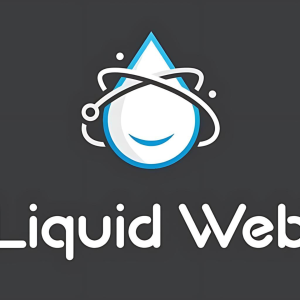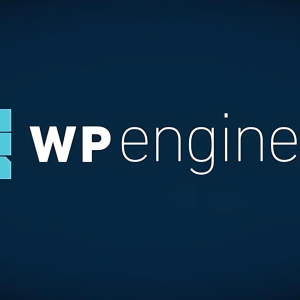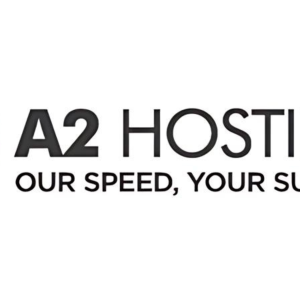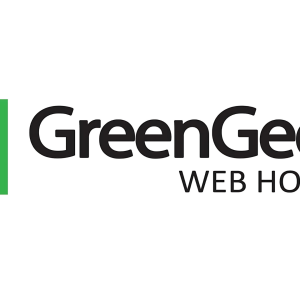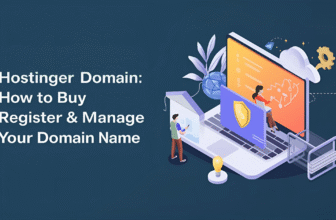
When it comes to WordPress hosting, security should be your top priority. A hacked website can cause a lot of damage to your reputation and can even cost you money. In this article, we will discuss the best secure WordPress hosting providers to ensure your website stays safe and protected at all times.
Why Security is Crucial for WordPress Websites?
WordPress is a popular platform, which makes it a target for hackers. A secure hosting provider ensures your website is protected from threats such as malware, brute force attacks, and data breaches. With the right hosting provider, your website’s security can be greatly enhanced, giving you peace of mind to focus on your content.
Key Security Features to Look for in WordPress Hosting
- SSL Certificate: An SSL certificate ensures your website has HTTPS, which encrypts data between your website and visitors, making it harder for hackers to intercept.
- Automatic Malware Scanning: Many secure hosting providers offer malware scanning and removal as part of their service.
- Regular Backups: Regular backups ensure that in case of an attack, you can restore your website to a previous, uncorrupted state.
- Firewalls and DDoS Protection: Hosting with a robust firewall and protection against Distributed Denial of Service (DDoS) attacks is crucial to keeping your website safe.
- Two-Factor Authentication: Hosting that offers two-factor authentication adds an extra layer of security by requiring a second form of verification to access your website.
Top Secure WordPress Hosting Providers
Here are some of the best WordPress hosting providers with top-notch security features:
- Liquid Web: Kinsta is a premium managed WordPress hosting provider that offers excellent security features, including daily backups, SSL certificates, and 24/7 monitoring. They also use Google Cloud’s infrastructure for enhanced security.
- Unbeatable reliability with a 100% uptime guarantee
- Lightning-fast performance for seamless user experience
- 24/7/365 exceptional support from industry experts
- Scalable solutions to accommodate your growing business needs
- State-of-the-art security measures for peace of mind
- Managed hosting options for hassle-free website management
- Tailored solutions for WordPress, WooCommerce, and more
- Trusted by over 45,000 customers worldwide
- WP Engine: WP Engine is another excellent managed WordPress hosting provider that prioritizes security. They offer daily backups, free SSL certificates, and a secure firewall to protect your website.
- Elevate your website’s performance with WP Engine’s managed WordPress hosting.
- Experience unparalleled speed, security, and scalability tailored for WordPress.
- Trust in WP Engine’s legacy of excellence with over 1.2 million hosted websites.
- Benefit from robust security measures, including daily malware scans and firewall protection.
- Seamlessly scale your hosting solution to meet the evolving needs of your business.
- Enjoy 24/7 expert support from WP Engine’s dedicated team.
- Choose from flexible hosting plans designed to suit startups, businesses, and high-traffic websites.
- Join the ranks of Fortune 500 companies who trust WP Engine for their hosting needs.
- A2 Hosting: A2 Hosting offers exceptional security features tailored for WordPress websites, including free daily backups, ultra-secure firewalls, and automatic security patches. With their unique KernelCare technology, your site is protected from vulnerabilities without any downtime. Additionally, A2 Hosting provides continuous monitoring and proactive malware scanning to safeguard your WordPress site against potential threats and attacks, ensuring a worry-free hosting experience.
- Lightning-Fast Speed: 20x faster Turbo Servers for optimal performance.
- Reliable Uptime: 99.9% uptime guarantee ensures your site is always online.
- 24/7/365 Support: Guru Crew support available anytime you need assistance.
- Eco-Friendly: Committed to green hosting with carbon offsets.
- Versatile Plans: Offers shared, VPS, and dedicated hosting plans.
- Secure Hosting: Free SSL certificates and robust security features.
- Developer-Friendly: Supports multiple programming languages and free site migrations.
- Bluehost: Bluehost provides secure WordPress hosting with free SSL certificates, automatic updates, and 24/7 security monitoring. They also have great customer support for any security-related issues.
- Leading web hosting provider since 2003
- 99.99% uptime guarantee and high performance
- Easy-to-use dashboard and one-click WordPress installation
- 24/7 customer support via phone, chat, and email
- Free SSL certificates and advanced security features
- Affordable plans for every budget
- Trusted by over 2 million websites worldwide
- Real customer testimonials praising reliability and support
- Greengeeks: GreenGeeks offers secure WordPress hosting with a focus on enhanced protection and reliability. Their hosting plan includes free SSL certificates, daily backups, and proactive security measures to guard against malware and cyber threats. With built-in protection from DDoS attacks and robust server-level security, GreenGeeks ensures that your WordPress site remains safe, stable, and protected from potential vulnerabilities.
- 🌿 Eco-Friendly Hosting: Partner with GreenGeeks for renewable energy hosting solutions.
- ⚡ Top-Notch Performance: Lightning-fast websites with eco-conscious technology.
- 🔒 Robust Security: Secure your site while preserving the environment with GreenGeeks.
- 🌐 Exceptional Support: 24/7 assistance for a smooth, eco-friendly hosting experience.
- 💡 Scalable Solutions: Grow sustainably with GreenGeeks’ scalable hosting plans.
- 📈 Proven Reliability: Join 600,000+ websites hosted on eco-friendly servers.
- 💻 Variety of Plans: Choose from web, WordPress, VPS, reseller, and dedicated hosting options.
- 🌍 Global Reach: Trusted worldwide for eco-friendly and reliable hosting services.
Pricing and Where to Buy
The prices for secure WordPress hosting vary, depending on the provider and plan:
- Liquid Web: Plans start at $5.25/month. You can purchase directly from the Liquid Web website.
- WP Engine: Prices start at $20/month. Visit WP Engine’s website to buy a plan.
- A2 Hosting: Plans begin at $1.75/month. You can purchase via A2 Hosting’s official website.
- Bluehost: Prices start at $2.95/month. Visit Bluehost’s site to purchase hosting.
- Greengeeks: Plans start at $1.95/month. You can sign up through Greengeek’s website.
Conclusion
Choosing a secure WordPress hosting provider is essential to protect your website from potential threats. Providers like Liquid Web, WP Engine, A2 Hosting, Bluehost, and Greengeeks offer top security features to keep your website safe. Be sure to choose a host that suits your budget and offers the security you need to protect your website.
FAQs
- Why is security important for my WordPress website?WordPress websites are particularly vulnerable to cyber threats due to the platform’s popularity. Hackers target WordPress sites to exploit vulnerabilities, steal sensitive data, or inject malware. If your website gets compromised, it can lead to significant damage, including loss of reputation, customer trust, and even financial losses. Secure hosting helps protect your website against these risks by implementing robust security features like SSL certificates, firewalls, malware scanning, and automated backups. A secure hosting provider ensures your site’s data remains protected, your users’ information is safe, and your content stays intact.
- How does SSL encryption protect my WordPress website?SSL (Secure Sockets Layer) encryption is a vital security feature that ensures data transferred between your website and visitors is encrypted and protected from interception. When your site has an SSL certificate, it activates HTTPS (instead of HTTP), which signals to both users and search engines that your site is secure. This protects sensitive information, such as login credentials, payment details, and personal data, from hackers trying to steal it through man-in-the-middle attacks. An SSL certificate also helps build trust with your audience, as modern browsers label sites without SSL as “Not Secure.”
- What is malware scanning, and why is it important?Malware scanning is a process by which hosting providers automatically scan your website for malicious software, such as viruses, worms, or Trojan horses. If malware is detected, the hosting provider will either quarantine or remove the threat to prevent it from spreading. Regular malware scanning is crucial because even a small malware infection can significantly damage your website’s functionality, user experience, and SEO ranking. Many secure hosting providers offer continuous malware scanning, giving you peace of mind that your website is always under watch for potential threats.
- How often should I back up my WordPress website?Regular backups are essential for ensuring that you can restore your website to a previous state if it gets hacked, experiences technical issues, or suffers from human error. Ideally, your hosting provider should offer daily backups, so your data is always up-to-date. Some hosting services provide automatic backups, meaning you don’t have to worry about manually creating them. Regular backups also help protect your data against server failures or unexpected outages. Additionally, storing backups in multiple locations (e.g., cloud storage or external hard drives) adds another layer of security to safeguard your website.
- What is DDoS protection, and how does it protect my website?Distributed Denial of Service (DDoS) attacks are a type of cyberattack where hackers flood a website with massive amounts of traffic to overwhelm and shut it down. DDoS protection helps prevent such attacks by filtering out malicious traffic and blocking requests that could harm your website’s performance. Hosting providers with DDoS protection implement various techniques, such as load balancing and traffic monitoring, to mitigate the impact of these attacks. By having DDoS protection in place, your website can remain functional and accessible even during high-traffic attacks, keeping your site safe from downtime and disruption.
- Is two-factor authentication necessary for WordPress hosting?Yes, two-factor authentication (2FA) is an essential security feature that adds an extra layer of protection to your website. With 2FA, you must provide two forms of verification to log in to your WordPress hosting account: something you know (your password) and something you have (a mobile device or authentication app). This significantly reduces the risk of unauthorized access, as even if someone manages to steal your password, they cannot log in without the second authentication step. Many secure hosting providers offer 2FA to protect both the website’s backend and the hosting account.
- What is KernelCare technology, and how does it improve security?KernelCare technology is a security solution provided by A2 Hosting that ensures your website’s server is automatically patched and updated without downtime. KernelCare focuses on the server’s kernel, which is the core part of the operating system that controls how data is processed and accessed. By continuously applying security patches to the kernel without requiring server reboots, KernelCare reduces vulnerabilities and prevents potential exploits from cybercriminals. This technology helps keep your site protected against security threats while minimizing any disruption to your website’s performance.
- How can I improve my WordPress website’s security beyond hosting?While a secure hosting provider is the foundation of website security, there are several additional steps you can take to further enhance your WordPress site’s security:
- Use strong, unique passwords for your WordPress admin area and database.
- Keep WordPress, themes, and plugins up to date to patch any security vulnerabilities.
- Install security plugins, such as Wordfence or Sucuri, to monitor for potential threats.
- Limit login attempts to prevent brute force attacks.
- Regularly audit your user permissions and delete inactive accounts.
- Implement an HTTP security header to add another layer of protection. These measures, combined with a secure hosting environment, can greatly reduce your risk of cyberattacks and keep your site secure.
- What should I do if my WordPress website gets hacked?If your WordPress website gets hacked, it’s crucial to act quickly to minimize the damage. Follow these steps to recover:
- Contact your hosting provider immediately to inform them of the breach and ask for assistance.
- Change all login credentials, including WordPress admin, FTP, and database passwords.
- Use malware removal tools or ask your hosting provider to scan and clean the site.
- Restore your website from a recent backup if available.
- Audit your site for any changes made by the hacker, including installing malicious plugins or modifying files.
- Strengthen your website’s security by enabling features like 2FA, SSL, and updating all software. Taking swift action and working with your hosting provider is critical to mitigating the damage caused by a website hack.
- Which WordPress hosting provider is best for security?
There is no one-size-fits-all answer when it comes to the best secure WordPress hosting provider, as different providers offer varying security features tailored to specific needs. However, some of the top secure WordPress hosting providers include:
- Liquid Web: Known for its premium security features, including daily backups, SSL certificates, and 24/7 monitoring.
- WP Engine: Offers advanced security measures, including free SSL certificates, daily backups, and a secure firewall.
- A2 Hosting: Provides ultra-secure firewalls, automatic security patches, and KernelCare technology.
- Bluehost: Offers excellent customer support, free SSL certificates, automatic updates, and 24/7 security monitoring.
- GreenGeeks: Focuses on enhanced protection, including DDoS protection, free SSL certificates, and proactive security measures. When choosing a provider, consider your budget, required features, and the level of support you need for maintaining your website’s security. Each provider has its strengths, so it’s important to find one that aligns with your website’s security needs.
